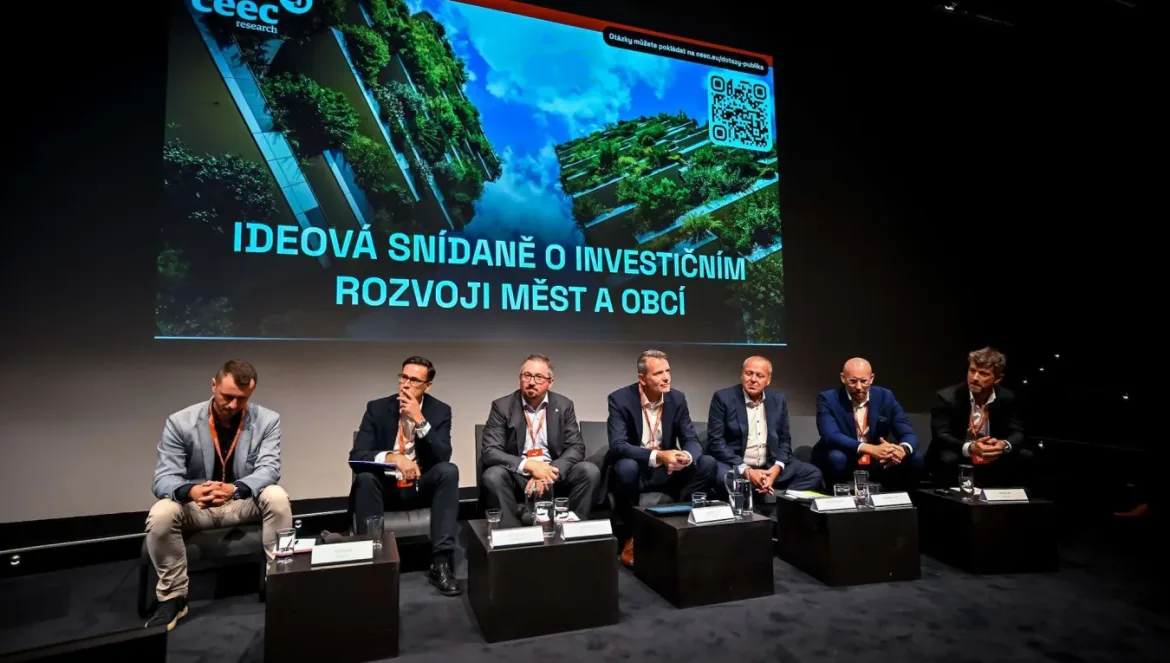Another in the series of Idea Breakfasts on the development of investment in towns and villages, this time focused on the topic of affordable rental housing and the upcoming state subsidy programme. The event, organised by CEEC Research at the Prague Centre for Architecture and Urban Planning, attracted experts from various sectors - from local government representatives, economists and architects to developers and technology suppliers.
Michal Vacek, Director, CEEC Research, identified affordable housing as one of the most topical issues, which is confirmed by the interest of the professional public and the quality of the discussions at the event. "Today's meeting brought a rich participation of representatives of cities, investors and contractors, but most importantly, a quality discussion on how to provide affordable housing," said Vacek.
Daniel Ryšávka, Director of the State Investment Support Fund, outlined the key parameters of the new programme aimed at building affordable housing. This programme should allow for the financing of new construction as well as renovations and purchases of housing units. Rysavka stressed that the state plans to involve developers and investors.
Dušan Kunovský, Chairman of the Board Central Group, he noted that the construction of new housing is key to ensuring affordable housing. "The Czech Republic needs to build 25 000 rental flats a year. In order to achieve this, we need functional legislation that does not slow down the construction processes and effective financial instruments," said Kunovský, who is working closely with the Ministry of Regional Development and the State Fund for Investment Promotion to prepare specific programmes.

Member of Parliament Milan Wenzl from the Subcommittee on Housing Policy and Construction is skeptical about subsidy programs. Instead, he would prefer cooperative housing, which has proven itself abroad. "I have a lot of experience as a former mayor of the borough and I don't believe the current subsidy programs will produce the desired results. Instead, we should restore the cooperative building system," Wenzl said.
Some municipalities are already considering ways to take advantage of the new programme. For example, Prague 8, in cooperation with an investor, is planning to build a multifunctional building with flats where prices would be 10 % lower than market prices. This project also includes the construction of a fire station, a multifunctional playground and other public spaces.
Economist Štěpán Křeček from BH Securities, praised the initiative of Prague 8, but warned that the CZK 7 billion program will not completely solve the housing problem. "It is a positive step, but for a real solution we need to change the zoning and speed up the construction procedure," Křeček said.
In the discussion, the opinion was repeatedly expressed that while the state is investing hundreds of billions in transport infrastructure, it should pay equal attention to affordable housing. For example, better high-speed train connections could ease the housing situation in Prague and other large cities.
Architect Jan Holna and Dušan Kunovský agreed that quality design need not be sacrificed for standardization. Standardised buildings can be both aesthetically appealing and cost-effective. According to Kamil Jeřábek from Wienerberger the way to faster construction is to standardise it, which will reduce costs by up to half.
David Shiller of Wood System drew attention to the potential of wooden buildings, which, however, face legislative restrictions. The first wood rental housing projects are already under construction, for example in Žďár nad Sázavou, where a house with 12 apartments is being built.
Despite differing opinions on the best model for building affordable housing, participants agreed that we need to look beyond subsidies.
(za) CEEC Research / gnews.cz_07



